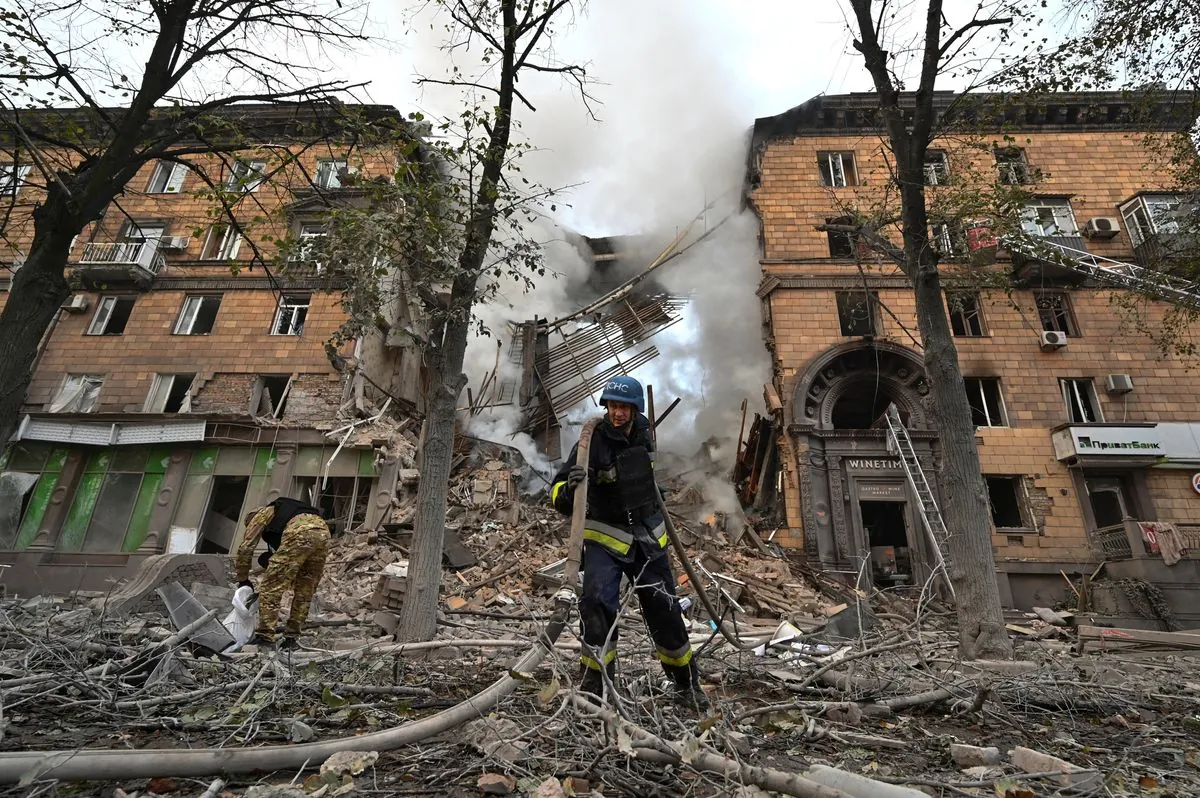In a recent escalation of the ongoing conflict in Ukraine, Russian forces conducted attacks on civilian areas in the southeastern Zaporizhzhia region and the central city of Dnipro, resulting in multiple casualties. The incidents, which occurred on September 2, 2024, highlight the continued impact of the war on non-combatants.
According to regional authorities, the Zaporizhzhia region, home to Europe's largest nuclear power plant, suffered 313 attacks and instances of shelling across 11 settlements in a single day. The attacks claimed two lives, including that of an 8-year-old boy. Additionally, a 12-year-old girl was severely injured and is currently receiving intensive care. The region, known for its rich agricultural lands and significant wind farm, has been a frequent target since the conflict's escalation in 2022.
In a separate incident, a missile strike on Dnipro, Ukraine's fourth-largest city and a major industrial center, resulted in one fatality and three injuries. The attack also caused damage to residential areas. Serhiy Lysak, the governor of Dnipropetrovsk region, reported the incident via the Telegram messaging app. Dnipro, historically significant for its aerospace and metallurgical industries, has played a crucial role as a logistical hub for Ukrainian forces during the ongoing conflict.
These attacks are part of a broader pattern of violence that has persisted since Russia launched its full-scale invasion of Ukraine approximately 2 years and 6 months ago. The conflict has had far-reaching consequences, affecting various aspects of life in the region, from agriculture to energy production.
The Zaporizhzhia Nuclear Power Plant, under Russian control since March 2022, remains a point of international concern. The region's strategic importance is further underscored by its border with the Sea of Azov and its rich mineral resources, including iron ore and manganese.
Dnipro, renamed from Dnipropetrovsk in 2016 as part of Ukraine's decommunization efforts, has a complex history. Once a closed city during the Soviet era due to its space and defense industries, it now stands as a symbol of Ukraine's resilience in the face of aggression.
While these reports of civilian casualties and infrastructure damage continue to emerge, it's important to note that independent verification of such incidents remains challenging. The Russian government has consistently denied targeting civilians in its military operations in Ukraine. However, the ongoing pattern of attacks on non-military targets raises serious questions about the conduct of the war.
As the conflict approaches its third year, the international community continues to grapple with its implications. The attacks on Zaporizhzhia and Dnipro serve as stark reminders of the human cost of this prolonged war, affecting not only strategic assets but also the lives of ordinary citizens, including children.
